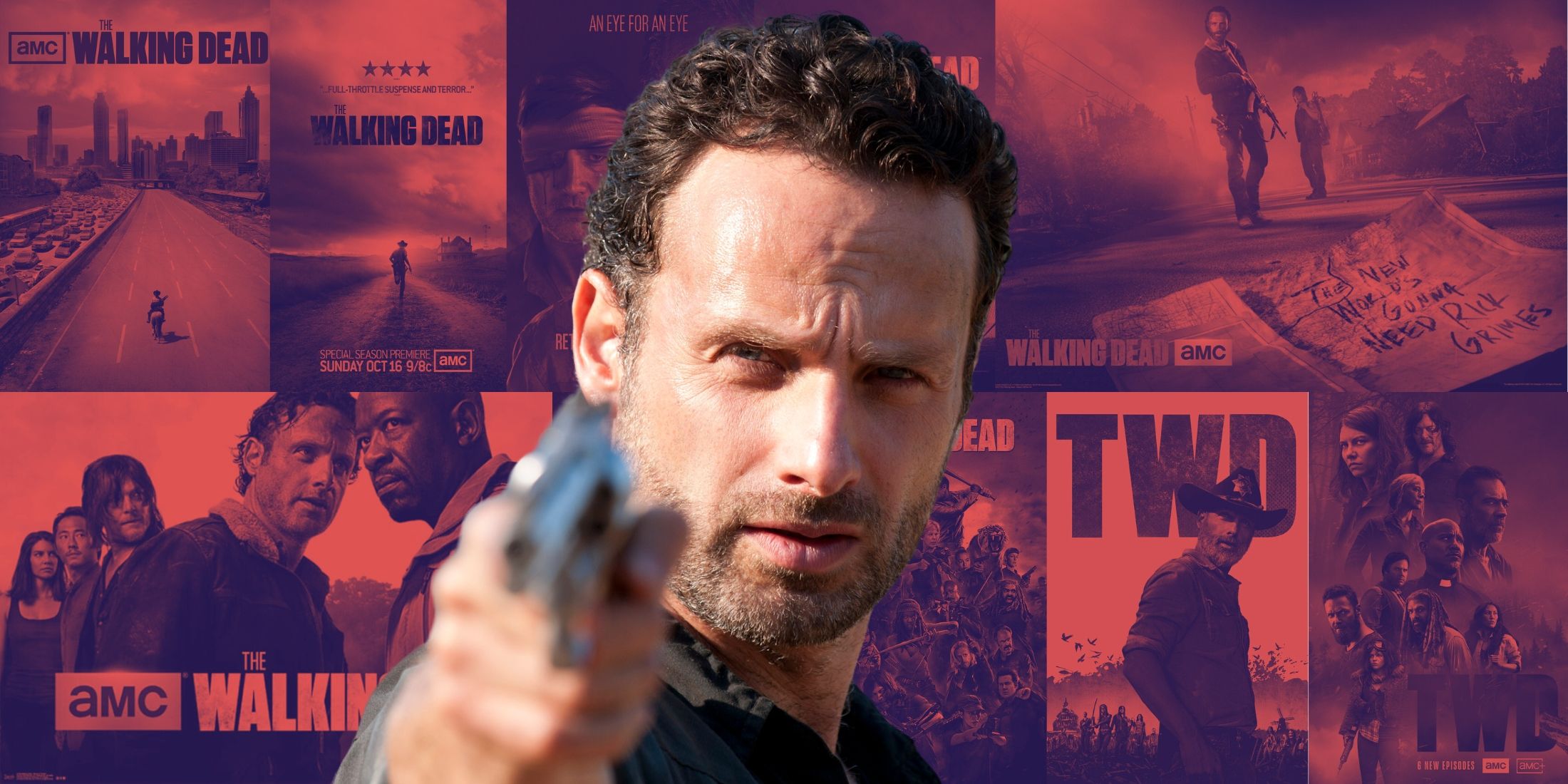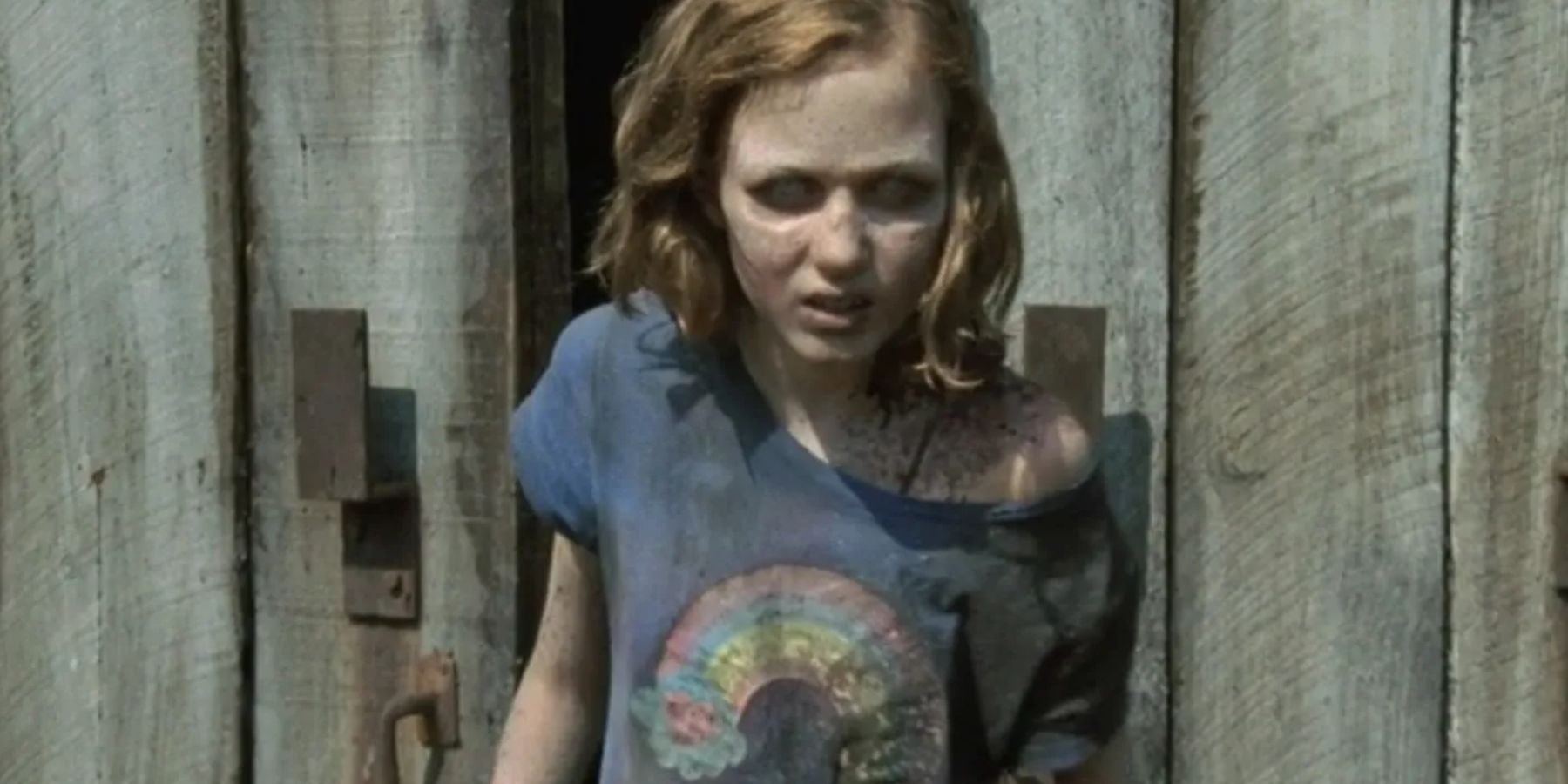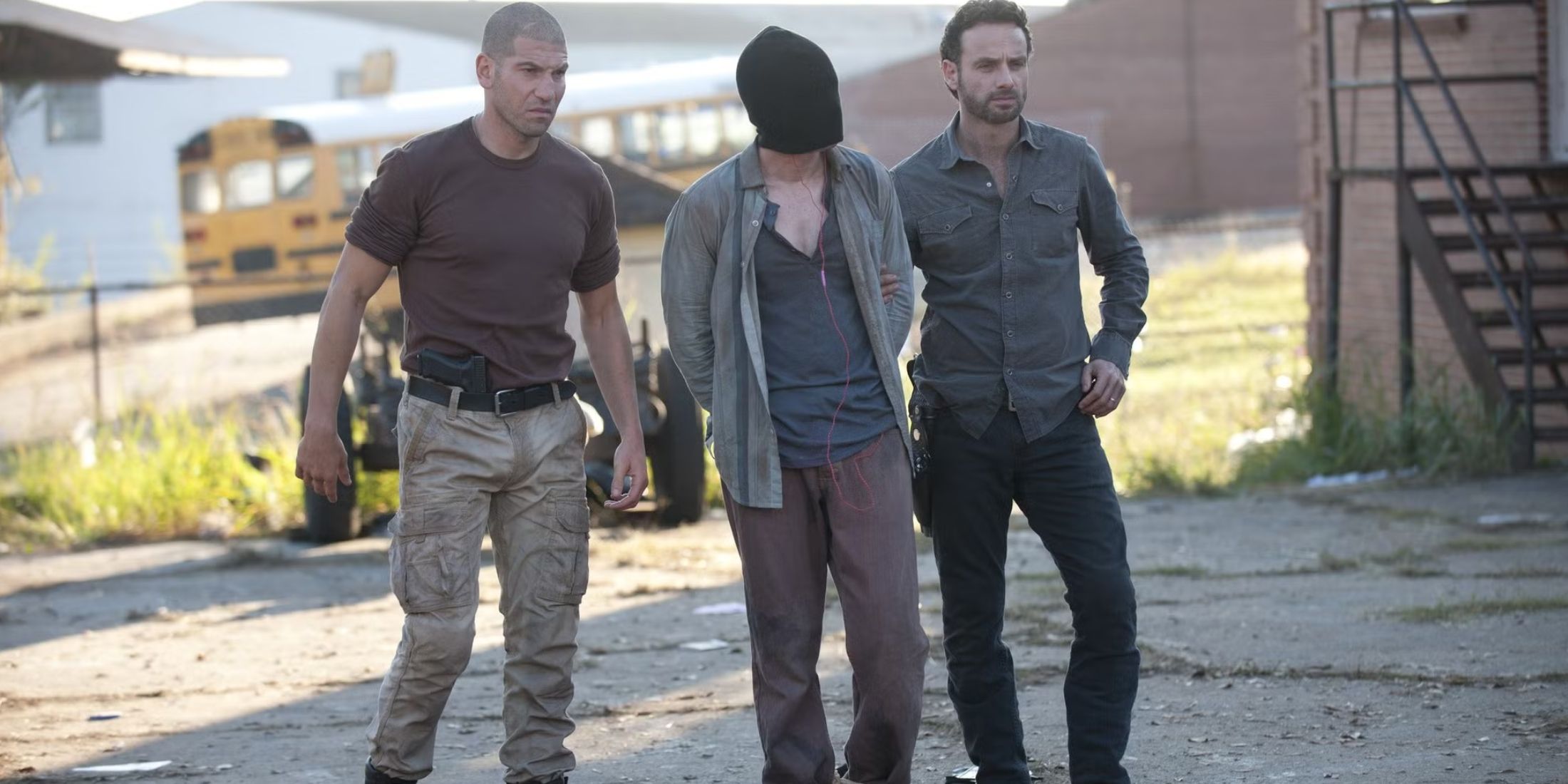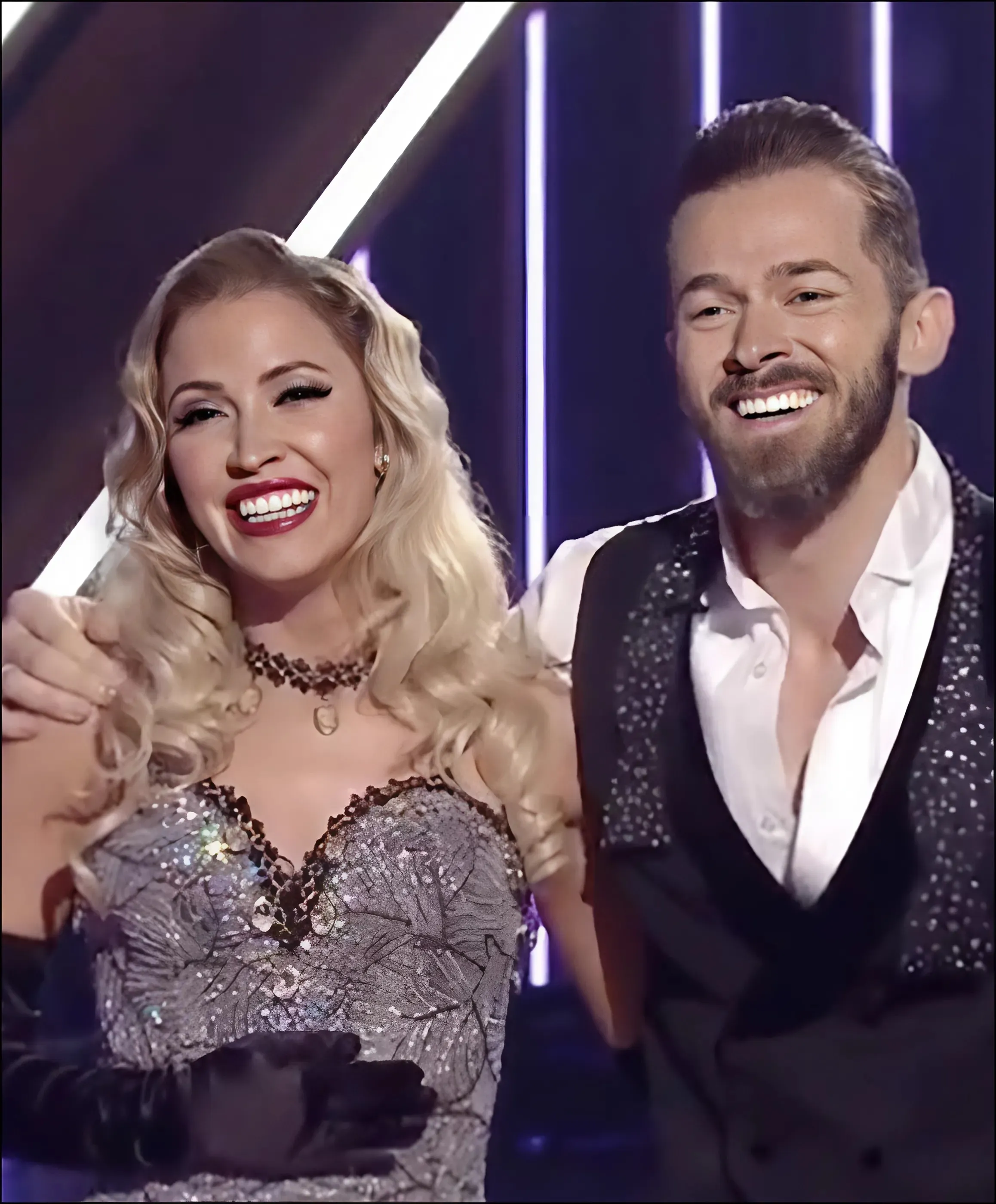![the walking dead season 2 stands above the rest]()
Few shows have captivated audiences like The Walking Dead, AMC’s long-running post-apocalyptic drama featuring Andrew Lincoln’s Rick Grimes and an ensemble cast of survivors. Over its 11 seasons, the show has had its highs and lows, but for many fans, one season still reigns supreme: Season 2.
While later seasons ramped up the action and introduced iconic characters, Season 2 set the gold standard for storytelling, character development, and tension.
The Walking Dead Season 2 Is A Masterclass in Slow-Building Tension
![The Walking Dead Sophia]()
Unlike later seasons, which relied heavily on action, Season 2 of The Walking Dead took a slower, more deliberate approach to the drama. Set primarily on a farm owned by Hershel (Scott Wilson) and his family, the story focuses on survival, moral dilemmas, and psychological turmoil, making every walker encounter and interpersonal conflict feel more potent and terrifying. Some examples include—
- The Farm as a False Sanctuary
- The farm's setting, with its open fields and sense of security, starkly contrasts with the dangers lurking beyond its borders. The farm’s isolation leads the group to become overconfident and complacent.
- Many have also found Hershel’s barn to symbolize the group's collective denial.
- Moments of Calm
- Season 2 often contrasts the looming danger with moments of relative calm, heightening the impact of the inevitable horrors. The group finds fleeting peace throughout, making their eventual losses even more devastating.
- In "Chupacabra" (Episode 4), the group shares a quiet evening around a campfire. They reflect on their lives before the apocalypse, telling stories and offering glimpses of their humanity. This scene lulls the audience into a state of false hope and makes the violence later in the season feel magnified.
- Shane’s Decline Into Paranoia
- As the group struggles with losing their sense of security, the mental state of Rick’s friend from season 1, Shane Walsh (Jon Bernthal), becomes increasingly unstable. His volatile emotions and sense of entitlement—particularly toward Lori—foster a tension looming that bubbles up from under the surface.
- Sophia’s fate
- This mid-season twist was one of the most emotional reveals in the entire series. In "Pretty Much Dead Already" (Episode 7), Rick, Shane, and the others finally discover Sophia (Madison Lintz)—alive, but now a walker—hidden in the barn. Even though The Walking Dead deals with lots of death and walkers throughout the series, the combination of a child's death, the grueling, drawn-out search, and the emotional toll it takes on the characters makes Sophia's fate one of the most poignant and heartbreaking moments in the show.
- When Rick is forced to put down walker Sophia, the heartbreak escalates to a nearly unbearable degree.
Critics widely praised Season 2’s ability to build tension while deepening character arcs. As noted in the critics consensus from Rotten Tomatoes, "The second season of The Walking Dead fleshes out the characters while maintaining the grueling tension and gore that made the show a hit."
“Sometimes the Dead Should Stay Buried” – A Season of Morality
![walking dead season 2]()
One of the biggest strengths of Season 2 was its exploration of moral dilemmas. Unlike later seasons, where survival often justified extreme actions, Season 2 invented many of the show’s popular tropes and was early enough into the apocalypse to hold complex debates about right and wrong.
Key Moral Dilemmas
- Keeping the Barn Walkers Alive:
- Hershel refuses to accept that walkers are beyond saving, believing they can still be treated as people. This creates a divide within the group between those who still see walkers as people and those who don’t.
- The decision to kill the walkers in the barn is a violent and emotional moment, shattering the illusion of peace and forcing the group to face the brutal reality of their world.
- Shane’s Growing Ruthlessness:
- Shane’s jealousy and desperation lead him to increasingly ruthless behavior, particularly towards Rick and Lori (Sarah Wayne Callies), as he believes himself better suited to lead the group, and better suited for Lori herself.
- Shane’s spiral into brutality contrasts Rick’s attempts to maintain moral integrity, pushing both men and the group toward inevitable conflict.
- Randall’s Fate:
- The debate over whether to kill Randall (Michael Zegen) or let him go highlights the group's moral divide. Shane advocates for pragmatism and Rick pushes for mercy— yet another example of the thematic argument.
- Ultimately, both Randall and Sophia's fates force the group to confront the potential loss of their humanity as they make tough survival choices.
The characters in The Walking Dead’s second season weren’t just fighting to survive; they were wrestling with the cost of their humanity. Their decisions had lasting consequences, making Season 2 feel more like a psychological thriller than a simple survival drama. Morality and optimism clash with brutal realism, making the Season's core debate one of the most compelling in the series.
Shane vs. Rick: The Walking Dead’s Best Rivalry
While The Walking Dead introduced many memorable villains like the Governor and Negan, few rivalries matched the personal stakes of Rick vs. Shane. Their relationship, built on a pre-apocalypse friendship, slowly unraveled throughout Season 2, as the writers used their two central characters to make the argument of severity vs. mercy.
Critics noted that this internal power struggle was one of the season’s strongest elements. In his original review of Episode 3, "Save the Last One," for A.V. Club, critic Zack Handlen discusses Shane's moral descent. "Shane has long been the dark horse of the group,” he predicted after the episode aired. “The one most likely to go off the morality reservation.”
- The rise of the “Ricktatorship”:
- As Shane becomes more unhinged, Rick's leadership style shifts toward a more authoritarian approach. His growing sense of responsibility for the group leads him to make decisions without consulting others, ultimately leading to a “Ricktatorship.”
- In the episode "18 Miles Out," Rick makes the unilateral decision to let Randall go, despite his friend's strong objections, and pushes Shane further toward violence and paranoia.
- Lori’s role in the rivalry:
- Lori's emotions complicate the already strained relationship between Rick and Shane. Torn between her love for both men, she unintentionally fuels the rivalry. Her involvement puts a spotlight on their differences, as Shane’s obsession with her contrasts with Rick’s more reserved, honorable approach.
- The final confrontation:
- In the episode “Better Angels,” Rick is forced to kill Shane in a reluctant act of self-defense. The tragic moment feels like the inevitable end to Shane’s downward spiral.
- However, Rick's strategy of “mercy” doesn’t necessarily win out. This painful decision forces him to confront the realities of survival, ultimately allowing him to balance his own idealistic approach with his friend’s brutal pragmatism.
Rich Character Development, Even For Side Characters
Outside the show’s main protagonist and antagonist, Season 2 gave nearly every character meaningful development, something later seasons often struggled with.
- Daryl Dixon (Norman Reedus): Daryl started as a rough, isolated survivor, but Season 2 began his evolution into a more caring and loyal group member. His bond with others, especially Carol, revealed his vulnerability, paving the way for his growth into one of the series' most complex characters and eventually resulting in his own spinoff.
- Carol Peletier (Melissa McBride): Carol’s transformation from a quiet, submissive figure to a resilient woman began in the second season, especially after the tragic loss of Sophia. While she was not yet the hardened warrior she would become, this season marked the beginning of her emotional and personal growth.
- Carl Grimes (Chandler Riggs): Carl’s maturation was significant in Season 2 as he faced the world's brutality. His childhood was interrupted by the apocalyptic reality, which materialized in the search for and eventual discovery of Sophia. His relationship with his father, Rick, became even more complicated as Carl witnessed Rick’s evolving leadership style and moral challenges. Meanwhile, Shane's growing influence as a father figure to Carl further deepened the tension between Rick and Shane, and Carl found himself torn between the two men's contrasting approaches to survival.
- Glenn Rhee (Steven Yeun) and Maggie Greene (Lauren Cohan): The season also introduced the romantic relationship between Glenn and Maggie, Hershel's daughter, a fan-favorite pairing. Their blossoming connection brought warmth and humanity to the group amidst the chaos and provided moments of levity.
The Walking Dead Legacy
Beyond its initial impact, the season’s legacy endures through the world’s continued expansion, influencing the tone and depth of later installments. The Walking Dead has since spawned numerous spinoffs, with recent, critically acclaimed series such as The Walking Dead: Dead City proving that the franchise still has compelling stories to tell.
Season 2 wasn’t just about surviving—it explored who these characters were before the world ended and who they were becoming. With its compelling moral dilemmas, unforgettable moments, and one of the best character rivalries in TV history, Season 2 remains a slow-burn masterpiece that set the bar for the following seasons.



-1740970934-q80.webp)


